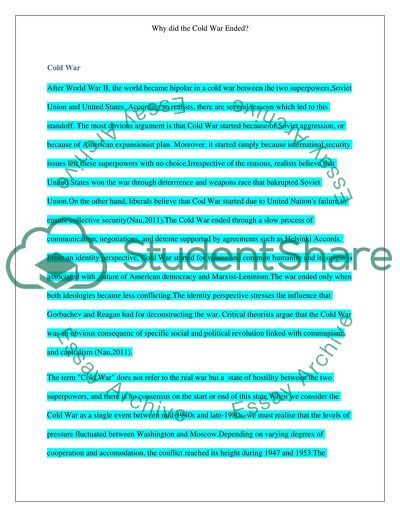Cite this document
(Why did the Cold War End Case Study Example | Topics and Well Written Essays - 5000 words, n.d.)
Why did the Cold War End Case Study Example | Topics and Well Written Essays - 5000 words. Retrieved from https://studentshare.org/history/1791361-why-did-the-cold-war-end
Why did the Cold War End Case Study Example | Topics and Well Written Essays - 5000 words. Retrieved from https://studentshare.org/history/1791361-why-did-the-cold-war-end
(Why Did the Cold War End Case Study Example | Topics and Well Written Essays - 5000 Words)
Why Did the Cold War End Case Study Example | Topics and Well Written Essays - 5000 Words. https://studentshare.org/history/1791361-why-did-the-cold-war-end.
Why Did the Cold War End Case Study Example | Topics and Well Written Essays - 5000 Words. https://studentshare.org/history/1791361-why-did-the-cold-war-end.
“Why Did the Cold War End Case Study Example | Topics and Well Written Essays - 5000 Words”, n.d. https://studentshare.org/history/1791361-why-did-the-cold-war-end.


